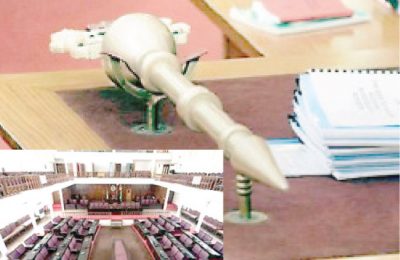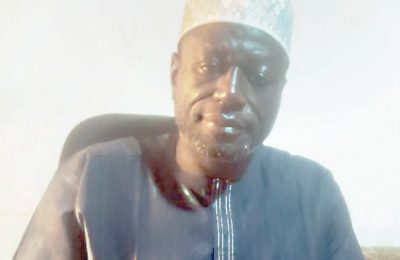
WHEN I was the Pro-Chancellor of the University of Lagos, I found out that most of the students who scored very high marks in JAMB examination were the children of some devious parents who had made an in-road to JAMB, thereby compromising the quality of their examination. It was for this reason that I, as the Chairman of the Committee of Pro-Chancellors of Nigeria, proposed in 2004 that JAMB be scrapped. Good enough, the government agreed with us, but with a proviso that JAMB should remain the platform while the individual universities were free to conduct their own UTME. That was the origin of post-UTME.
I have said it several times that university education in the medieval ages was pioneered by Christian’ missionaries, particularly the Roman Catholics, and not by government. Priority was given to discipline and character moulding and the trend has continued till today with missionary, private universities as well as many private universities founded by philanthropist but certainly not with public schools. It would appear that Nigeria started on a wrong note following the Elliot recommendation after which government established and funded the first university (University of Ibadan) in 1948 while the nation’s second-generation universities like University of Ife, University of Lagos, Ahmadu Bello University, Zaria and University of Benin, among many others, followed suit. By this act, government made people to erroneously believe that it was the duty of government to establish schools and fund education.

It is the duty of parents to train their children, even if government or some other agencies may render some form of assistance. It is immoral, if not sinful, to produce children and donate them to the government to train. Perhaps more importantly, it is improper for politicians and government functionaries to promise the electorate free education or force parliament to establish universities in their constituencies when they know they cannot afford what it takes to provide private quality education.
This week, in further consideration of the falling standard of education in Nigeria, I will look at the role that curriculum has played and continues to play in the deterioration of Nigeria’s education system in Nigeria. It must be stated from the outset that Curriculum is central to any formal system of education because it defines what ought to be learnt and to a large extent, how it ought to be learnt by a student.
Some of the primary objectives of formal education include empowering the recipient with capacity for independent, critical and creative thinking, making him self-reliant, self-disciplined, courageous and innovative through deliberate inculcation of critically important values that define a person as educated. Whether these objectives will be achieved or not depends largely on the curriculum which provides the content of the education imparted in the student. Therefore, a curriculum at the elementary level up to be more complex, technical and specialist curriculum at the tertiary level. The outcome of a properly designed and effectively delivered curriculum in any educational system is the positive advancement of the society in all ramifications. A competent problem solver, a wealth creator (whether he is working for himself or for others) and a positive social engineer through advancement of new ideas that will guarantee sustainable development of the society. The easiest way to evaluate whether a society has a functional education or not is by looking at its economic and social developments.
A poor and backward society is simply a reflection of a backward and dysfunctional educational system while a rich and prosperous country is a reflection of a rich and functional educational system which, by extension, is largely dependent on its curriculum. History is full of examples of countries which transformed their fortunes, almost instantaneously, by making deliberate changes in the nature and system of their formal education, usually by studying and applying successful systems from other regions. More recent examples include Taiwan, Singapore, South Korea and China among many others. In fact, the reason countries like USA and United Kingdom are choice educational tourist centres in the world, particularly at the tertiary level, is due to the successes their educational systems have recorded in transforming their societies.
Nigeria’s educational curriculum: Problems
Since curriculum is an important aspect of any formal education, I will at this juncture examine some of the curriculum-based problems in Nigeria’s educational system. Those of us who have had the privilege of living for several decades and have been closely connected with the educational system in Nigeria can tell first hand that a lot has changed over time.Unfortunately for the worse in the education curriculum of this country at all levels. I am a typical example of a functional quality education taught in elementary school in the colonial days which remains the only class-room-based education I received in my life.
With the benefit of hind sight, I say that the curriculum developed at the time by the colonial masters fitted properly into the developmental needs of the country at that time. In a society that was almost completely illiterate, achieving primary education and much more so secondary education, was such an enviable height reserved for a privileged few. The designers of the curriculum at the time therefore knew that the available minimal education at the time must be such as would empower the recipients with as much knowledge and skills as possible so as to enable them contribute positively and meaningfully as educated members of the society. It was therefore common to see brilliant primary school graduates at the time effectively taking up teaching and other government jobs that now require graduates with higher educational qualifications. The real tragedy is that the competence of these new higher institutions’ graduates cannot be compared with that of the primary and secondary school graduates at the time.
As primary school pupils, we studied subjects that empowered us with language skills, mathematical and analytical skills, critical thinking, independence and self-reliance. One subject I found very fascinating and practically useful which remains very relevant in almost everything I do on daily basis is geography. As a primary school pupil in geography, I studied geography, regional and political geography/the oceans – world climate, rainfall, the latitudes and longitude, the importance of international date line, equator, tropics of Cancer and Capricorn, the movement of the moon in relation to the sun, the great rivers of the world, the winds, currents, cities and ports. We were made to draw world maps using latitude and longitude without reference to the Atlas, maps.
….To be continued next week
YOU SHOULD NOT MISS THESE HEADLINES FROM NIGERIAN TRIBUNE
PICTORIAL EXPLAINER: How To Identify Fake New Naira Notes
The Central Bank of Nigeria (CBN) has released security features to help identify fake new naira notes. According to CBN’s template, the Security features to look out for are the following…
Ondo Councils’ Workers Shut Down Assembly Over LG Autonomy
LOCAL government workers under the aegis of Nigeria Union of Local Government Employees (NULGE), Ondo, on Tuesday, stormed the State House of Assembly, threatening a showdown with the lawmakers over the signing of local government autonomy…
FG To Discontinue Cash Withdrawal From Public Accounts
The Federal Government is putting the final touches to all necessary measures to stop cash withdrawal from federal, state, and local government accounts. The Director/Chief Executive Officer of the Nigerian Financial Intelligence Unit (NFIU), Modibbo Hamman Tukur, revealed…
Reps Probe Crude Oil Sales Over $2.4bn Revenue Loss
The House of Representatives on Tuesday unveiled plans to investigate the allegation bothering on the alleged loss of over $2.4 billion in revenue accruing from the illegal sale of 48 million barrels of crude oil export from 2014 till date…
Emefiele/DSS Tango: Falana Asks Judiciary To Treat Civil Liberty Cases Equally
LEADING rights lawyer, Mr. Femi Falana, on Tuesday addressed the controversial move by the nation’s secret police to arrest and detain the embattled Governor of the Central Bank of Nigeria (CBN), Godwin Emefiele…
EDITORIAL: CBN’s New Cash Withdrawal Limits
As a follow-up to its redesign of the N200, N500, and N1000 banknotes, the Central Bank of Nigeria (CBN) recently announced a new policy that mandates deposit money banks and other financial institutions to ensure that…








